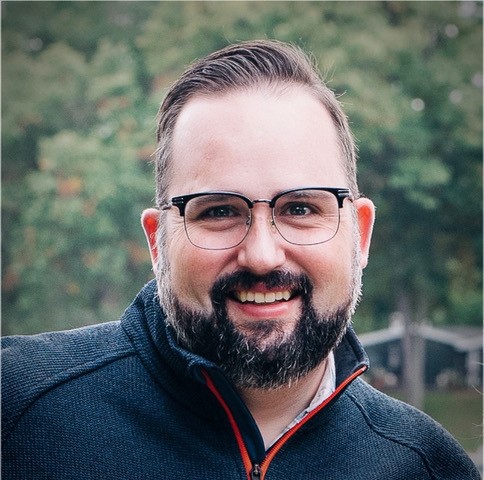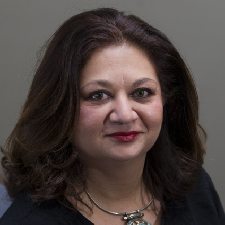Following George Floyd’s murder in May 2020, Americans took to social media to express outrage and share frustrations. One specific tweet caught the eye of IU Ph.D. candidate Danny Carroll, who had begun his doctoral program in the IU School of Social Work examining race-based trauma and traumatic stress.

“As cliché as it sounds, that one tweet changed my trajectory completely,” Carroll said. “It said, ‘white supremacy isn’t something that will be dismantled until white individuals see it as something they need to confront rather than something they need to empathize or sympathize with.’ I had been looking at the problem of racial injustice and the byproducts of it, but I realized I needed to shift focus and began looking at whiteness and white supremacy.”
Carroll said extremism is a significant threat to the United States, with racially-motivated hate crimes occurring frequently across the country. But while a lot of research has been conducted on how people are radicalized into white supremacist and white nationalist hate groups, he said very little had been done on the journey out of extremism.
That exit is the focus of Carroll’s dissertation, which includes interviews with 18 former extremists on their own exits from extremist groups. He hopes his research will ultimately help train social workers in dealing with this unique population by providing new ideas for treatment and engagement, all while adding tools to the national toolbox for dealing with extremism.
According to Carroll, many individuals who get involved in far-right extremism don’t do so initially because of racism. But like a cult or gang, there are a lot of psychosocial elements at play that draws people in, and the extremist ideology is adopted as a result. If an extremist ideology can be learned, Carroll said, it can also be unlearned.
“If we want to confront white supremacy in the first place, we cannot just do it from the front end to ensure people aren’t radicalized, but we also need to develop a way out that holds them accountable but also doesn’t judge them only for their bad decisions,” Carroll said. “Currently, there are no best practices in place for the journey out of extremism, no exit ramps and no services available. I wanted to look at social work’s role in this. I hope my research can lead us to individuals who want to get out and that we can help them exit in a healthy and accountable way.”
One of Carroll’s focuses is on “post-extremist traumatic stress,” which examines individuals from a humanistic strengths-based approach rather than the criminal justice and political science lens they are often viewed through. Studying their roles through a humanistic lens allows for a wider variety of engagement and intervention, he said, while not focusing solely on the bad behavior.
“Through traumatizing others, these people too were often traumatized, and they leave with a broken social network, experience economic issues and need jobs and housing,” Carroll said. “Empathy is important and seeing an individual and the challenges they are facing – why they got involved and why they make these decisions – allows us to really engage the problem instead of reacting to it.”
IUPUI associate professor Khadija Khaja, Carroll’s mentor and dissertation chair, called him a true visionary for his approach to tackling this important issue.

“His groundbreaking research on far-right extremism is of central importance, particularly in light of the racism and violent hate acts that have been occurring in this country and globally against minorities,” Khaja said. “He has already made and will be making such a crucial path-breaking scholarship contribution to addressing social injustice, racism and white supremacist movements.”
Even as he prepares to defend his dissertation on August 1 and begin as an assistant professor at Colorado Mesa University in the fall, his research in this area will continue to serve as a resource for future social workers at IUPUI in the form of an elective course he developed with Khaja. The class, “White Supremacy, White Nationalism, and Anti-Racist Social Work Practice,” was launched in Spring 2022 and was full almost immediately. Many students told him they felt it should be required coursework.
Carroll credits his time at IU and his interactions with IUPUI faculty for helping him grow and succeed as a researcher.
“While many people know us for our athletics, IU is also a powerhouse in terms of research,” Carroll said. “The platform I’ve been given as a researcher, and the support of faculty who have helped show me what it means to be a human in academia, has been incredible. IU has been a champion of my success every step of the way and has helped me develop a research agenda that can make real impact.”

